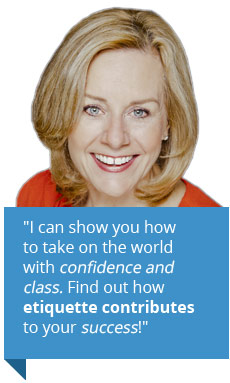Cultural Communication Etiquette: Asian Culture
October 14, 2013 Have you ever received an email and it was unclear which name was the first name and which was the last? Many cultures don’t follow the Western convention of given name followed by family name.
Have you ever received an email and it was unclear which name was the first name and which was the last? Many cultures don’t follow the Western convention of given name followed by family name.
I have been working with a colleague of mine from Toastmasters who is from Singapore, and he’s been giving me some guidance on the use of surnames versus given names in communication.
Chinese, Korean, Japanese and Vietnamese names are presented in reverse from Western names. The surname, or family name, is always said or written first and then the given name. When written, such as in the signature of a letter or email communication, the surname is often entirely capitalized to make it easier for people to distinguish it from the first name. As an example, my colleague’s full name is CHUNG Li– Chung is the surname and Li is his given name.
However, it’s important to note that those who returned from overseas, especially from the U.S., have adopted to the Western format – first name followed by last name. This can definitely be a source of confusion in Asia, with the fusion of different cultures.
It’s also interesting to learn that in Chinese, the professional, social and family titles follow the family name in written communication, such as with the example: Chung Jingli (Manager Chung). When speaking to, or about a Chinese person in English, the title is said before the family name. For example, Chung Xiansheng (Mr. Chung).
In China, it’s inappropriate to call someone by only his or her last name. Chinese generally introduce guests using their full title and company names. You should do the same: Example: Mr. Louis smith, CEO of Canadian Press Association.
Chinese women use their maiden names, even after marriage, but may indicate their marital status by using Mrs., Ms., Miss, or Madam. However, children take on the surname of their father.
Important to note, as my colleague pointed out, “There are many non-conformists, so it’s rather difficult to generalize when you are in Asia. It’s best to ask if you are unsure, so you don’t get it totally wrong!”
Today, more than ever, we have great opportunities to build business relationships with people around the world. Don’t let a slip up, like addressing someone incorrectly, set an uneasy tone for your relationship. Take the time to learn about the Asian culture and customs—the payoff for both of you will be well worth it! As they say, imitation is the highest form of flattery.
 Print This Post
Print This Post
Leave a Reply




No Comments Yet
You can be the first to comment!